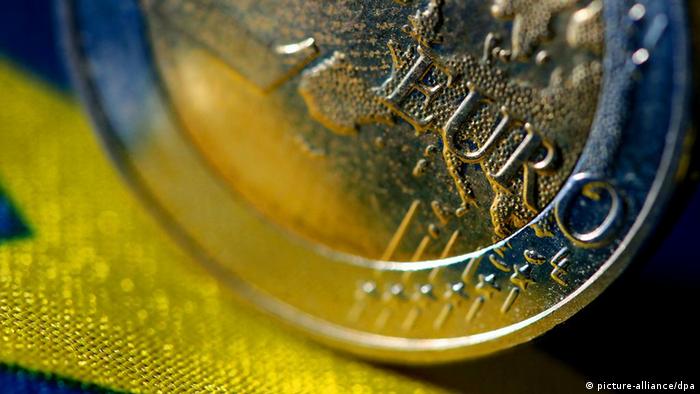24 June 2012 Last updated at 19:44 ET
 Data says funding for aid work has been cut by European countries
Data says funding for aid work has been cut by European countries
 While aid money does save lives, critics say it is often wastefully distributed
While aid money does save lives, critics say it is often wastefully distributed
Eurozone crisis causes aid cuts to poor, report says
 Data says funding for aid work has been cut by European countries
Data says funding for aid work has been cut by European countries
The European debt crisis has led to cuts in government development aid to poor countries, says a new report by the aid watchdog Data.
It is the first significant reduction in Europe-wide aid budgets for a decade.
The biggest percentage cuts in the year 2010/11 were made by two of the states worst affected by the debt crisis - Spain and Greece.
But overall European development aid was also down by 1.5%.
The report says the new figures "reveal that those bearing the brunt of Europe's economic crisis include some of the world's poorest people".
"As austerity bites across Europe, we can now see the impact it is having on life-saving aid programmes," it adds.
In the year 2010-11, Spain cut its aid budget - the sixth largest in Europe - by nearly a third.
Greece cut its much smaller programme by 40%, according to the Data study, which was published in association with the campaign group ONE.
Anti-poverty target
The report is published as part of a lobbying campaign by aid agencies as EU leaders begin negotiating the next seven year European budget.
Over the last decade the trend has been for aid cash to rise.
European countries account for just over half of all global official development assistance.
Many of them have been slowly nudging towards a United Nations anti-poverty target of 0.7% of national income spent on aid.
The Netherlands and some Scandinavian countries have exceeded this proportion.
By far the biggest three donors are Germany ($14bn - 0.39% of national income), UK ($13.5 bn - 0.55%) and France ($12 bn - 0.42%)
One of the authors of the Data report, Adrian Lovett, said the countries that would be worst affected by any prolonged aid cuts were poor African states.
He said: "The countries we're worried about are mostly in Africa - for example Mozambique, Tanzania and Malawi.
"At the moment they need aid and its saving lives on a daily basis."
 While aid money does save lives, critics say it is often wastefully distributed
While aid money does save lives, critics say it is often wastefully distributed
There's a broad official consensus among aid agencies - and the western governments that often finance them - that development aid works.
But aid is not without its critics.
Some say it is wastefully distributed and can discourage poorly performing developing country governments from accepting their responsibilities.
The argument goes that if Medecins Sans Frontieres run the best hospitals in Haiti, for example, or Oxfam successfully digs the best water wells in Chad, why should the governments there bother?
Smart leadership
Such critics would also argue that countries such as China and India - and the many African states which currently have strong economic growth rates - are not getting richer because of aid.
In many of these cases, the aid critics say, infrastructure investment, commodities exports or liberalisation have been far more significant than aid.
Adrian Lovett counters these arguments with the example of Ghana.
"Ghana has in the past had a substantial amount of aid. That assistance has been well used through smart leadership at the national level and better coordination by the various donors.
"So Ghana is now on the brink of ending its dependence on development cash. That's exactly the route we see many African countries potentially taking."
But Mr Lovett drew a distinction between emergency aid - for famine victims, for example - and longer term development assistance.
He said aid advocates such as himself wanted, ultimately, to do themselves out of a job.
"There's always going to be international action around humanitarian crises. That is a natural human impulse.
"But we do want to see a day when we will help some countries and they will also help us in return in a relationship of equals.
"We want that rather than the donor client relationship we have seen in the past."

















